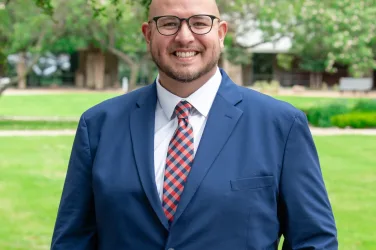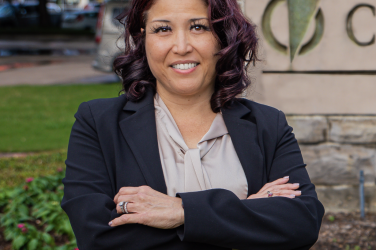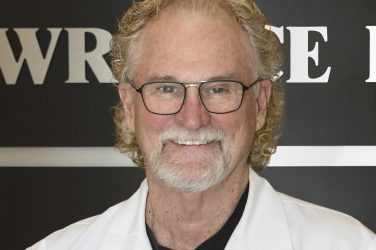
Q&A
Are There New Methods For Performing Spine Surgery?
There certainly are. In the last ten years, there’s been a push toward minimally invasive spinal procedures in which the portals for the incisions are much less destructive as the surgeon accesses the spine through a significantly smaller incision allowing for earlier recovery and mobilization. With these less-invasive surgeries, there’s less bleeding, less tissue destruction, less risk of infection, less pain, and a more rapid recovery.
What Special Technology Is Allowing You To Perform Surgery In This Way?
Baylor Scott & White Orthopedic and Spine Hospital – Arlington has invested in a million-dollar Globus Excelsius Robotic Navigation System. This advanced robotic platform allows surgeons to be even more accurate with spinal instrumentation thereby making spinal surgery more precise for our patients. It also allows a less invasive approach to the placement of spinal instruments. The robot synchronizes preoperative CT spans with live intraoperative imaging to allow for more accurate surgical precision and better patient outcomes.
How Will This Surgery Help My Spinal Condition?
The goal of any spine surgery is to treat and alleviate the underlying pathology affecting your quality of life. Surgery is selected to be the smallest surgical intervention for the best benefit and patient outcome. The Globus Excelsius Robotic Navigation allows us to select small surgical options for maximum benefit to the patient. One common spinal pathology is instability of the spine called Spondylolisthesis. The robot allows us to offer spine stabilizers in the effected segment of spine experiencing instability and decompresses the nerve structures causing the symptoms to decrease significantly post-operatively.
Am I Too Young Or Too Old For Spinal Surgery?
There are no age parameters necessarily for spinal surgery, but we practice a conservative approach, only recommending surgery after all conservative treatment options have been exhausted. There’s not a specific age when surgery is recommended or not recommended, as physiological aging is different for everyone. Age is just a number. What matters is whether your problem is interfering with your quality of life and whether you’re medically able to undergo surgery.
Is There Any Harm In Waiting To Have Surgery?
That depends upon the problem you’re experiencing. There are a few true spine emergencies in which case patients are urged or required to undergo surgery. For the most part, spinal surgeries are elective in the sense that they’re aimed at improving or maintaining your quality of life. But if you’re experiencing neurologic deficits including sensory for motor, there is a risk of permanent or worsening neurologic deficits.
Tell Us About A New Advancing Technology That Has You Excited.
Intraoperative imaging is allowing surgeons to access real-time modifications to surgical procedures. Globus Excelsius at BSW Arlington is one such technology. It’s offering surgeons the advancement of minimally invasive technique to allow complex surgeries that otherwise would have been done through a large surgical procedure and required a lengthy hospital stays. It can now be performed quicker with more precision and with better patient outcomes.
About The Expert

Dr. Eric Wieser Dr. Ryan Murphy
Baylor Scott & White Orthopedic And Spine Hospital – Arlington
Dr. Eric Wieser is a fellowship-trained orthopedic spine surgeon and co-founders of the Baylor Scott & White Orthopedic and Spine Hospital – Arlington. He has practiced in North Texas for nearly 15 years
Dr. Ryan Murphy is a fellowship-trained orthopedic spine surgeon with a special interest in minimally invasive and single-position surgical techniques.










